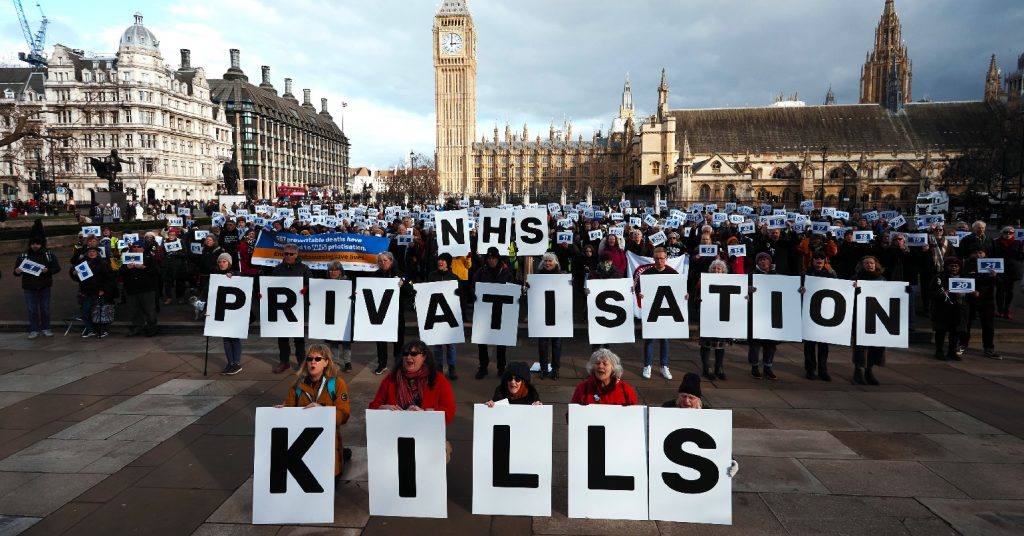Academics and the defence of their universities
Luke Martell
An inspiring Convention for Higher Education in Brighton has made an important step forward, discussing what the public university should be, and investigating the implications of its marketisation. Universities in England have introduced sky-high tuition fees. Inequalities will escalate. Private providers are working their way in, with government support. Competition between universities more and more defines what they do. Combined with internal markets it means money flows to areas of profit rather than to what’s educationally valued. Lecturers have become deliverers and students consumers, rather than citizens of their institutions. Governance is top-down with a dwindling role for collegial democracy. Changes to academic publishing mean academic freedom and opportunity are under threat.
Another question came up at the convention: what to do. At Sussex University the management is marketising on a grand scale without meaningful dialogue. They’ve been radical. But the same sort of thing is going on elsewhere. The opposition to outsourcing at Sussex has also been unusually strong, but there may be general lessons from its campaign.
For me, four themes come to mind: the balance between the role of staff, their unions and the student movement; collective versus individual approaches; strategies based on discussion, media and propaganda being aligned with practical and disruptive routes; and disjunctures between national co-ordination and local approaches.
A year ago the Sussex management announced outsourcing of 235 already lower-paid jobs and large swathes of central non-academic services. Unions entered negotiations about the transfer to the private sector. They didn’t initiate an oppositional campaign, so eventually an autonomous one was started by staff and students. The anti-outsourcing group endured months of hard graft. It bent over backwards to support the unions. But they treated it with suspicion. In 2013, armed with its symbol the yellow square, the campaign started to take off. An 8 week occupation of the corporate conference centre followed. A grassroots Pop-up Union was formed to push the recognised unions into more oppositional action. Surveys and indicative ballots showed large majorities of students and staff opposed to management outsourcing and in favour of action against it.
The University and College Union has also descended on the seaside. Its national policies and briefings show how revolutionary the privatisation of higher education would be. But its branches can end up focused on outsourcing deals. The student movement has led the opposition internationally. This echoes the early days of the Cameron government when unions admitted student action against fees and austerity had shown them to be slow off the mark.
With significant exceptions, academics can be inert or complicit in the face of university privatisation. Some are focused on individualistic concerns about career and autonomy. Solidarity with insecure, hourly-paid and low-waged staff can be thin on the ground. Professors are preoccupied with their own pay. Some supporters of anti-privatisation are inactively so. There’s the odd armchair Marxist, evident mainly by lack of evidence of them when it comes to turning theory into practice. Pragmatic reasons can be found for passivity. Nothing can be done. It’s just as well the suffragettes didn’t adopt this philosophy.
Liberal academics accept confinement to procedures that have been modified to diminish their role and are tightly controlled by managements, rather than challenging the new governance.
Academics’ unions do under-valued work on the ground, on problems such as bullying, harassment, equalities and redundancy. But they focus on them day-to-day, more than challenging the structural change of privatisation that will make these much worse. The important Campaign for the Public University and the Council for the Defence of the British University speak up. But these are informational and lobbying fora, not organisations of collective action.
At Sussex the occupiers tirelessly exploited conventional and social media. They won the propaganda war. But the outsourcing process continues. The media is vital, but has to be supplemented. Discussing university marketisation is very important for deciding what we want to challenge and what we believe. We also need to talk beyond the informed, concerned and critical. A Charter for Higher Education is a really good initiative. We must think how to put it into action.
Academics should take an active and oppositional role to the transformation of what they’re all about, supporting the student movement, and debating beyond the usual suspects. They need to go further than the media and the message and be practical and disruptive. They can recognise the determination of managements and governments, by also targeting providers who want to take advantage of privatisation.
Resistance has varied and academics can incline towards atomisation and making statements. Individuals can be picked off by disciplinary action, or intimidatory charges for protest. So the response to university marketisation needs to be collective and co-ordinated.
Oppositional, practical, collective and co-ordinated: this means trade unions. Unions can be frustrating. But they have members, resources, the capacity for national co-ordination, and the power to withdraw their labour. University marketisation is a structural change being forced through nationally and internationally. It’s transforming what higher education’s all about. Academics need to stand up for public universities. Their unions should be part of this, locally and nationally.
A video of the talk that this article is based on can be seen here.




Leave a Reply